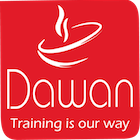Goals
- Learn to supervise, repair, customize and maintain Linux servers
- Prepare for the transition to 201 certification
Program
Monitoring of CPU usage, memory usage, FS IO rates and network interfaces IO rates
Monitoring of firewall activity
Audit of bandwidth consumption per user
Analysis of problems related to lack of resources
Congestion risk analysis
Load tests
Planning of resource requirements
Use of Nagios, cacti, MRTG monitoring tools
Workshop : simultaneously conduct a monitoring system and stress tests
Kernel 2.6.x and 3.x
Kernel compilation
Makefile management
Configure compilation settings
Installing a kernel and its modules
Using dracut
The kernel administration commands
Modules management
Workshop : compiling your own kernel
Syst V and LSB
current bootloaders: LILO, GRUB
initialization of hardware elements
Starting demons
Configuring Boot Files
Knowledge of UEFI
Workshop : create an à la carte runlevel
Configuring fstab
Use of UUIDs
SWAP space configuration
Journaled File Systems
MSDS management tools
Local and encrypted FS
Optical media, CD-ROM, DVD
Workshop : create and resize several FS
RAID 1 to 5
Configure and manage LVM
Device management tools
RAID management tools
LVM management tools
Workshop : install a RAID configuration
Interface management tools
Addressing management tools
Configuring the routing table
Network traffic monitoring
Network traffic analysis tools
Workshop : exploiting the network in a complex situation
Archiving management
Archiving tools
Common archiving solutions
Workshop : install an archiving solution
Duration
5 days
Price
£ 2599
Audience
Linux System Administrators
Prerequisites
Have the LPI 102 certification or equivalent knowledge
Reference
LIN1138-F
Subject 200 : Size your infrastructure
Monitoring of CPU, memory, disk and network consumption
Supervision of filtered and routed traffic
View bandwidth usage
Match / Correlate System Symptoms with Common Problems
Estimate traffic and identify bottlenecks, network included
Use collectd to monitor the use of the IT infrastructure
Predict resource failure points
Monitor rates of increase in resource use
Plot the trend curves of resource use
Know the main monitoring solutions: Nagios, MRTG and Cacti
Workshop : MCQ to comment on the subject 200
Subject 201 : The Linux kernel
Use the kernel modules necessary for specific hardware, drivers, system resources.
Implement different types of Kernel images
Recognize stable and developing kernels and patches
Use kernel modules.
Documentation on 2.6.x and 3.x kernels
The Kernel Makefiles
Kernel 2.6.x / 3.x « make target » targets
Customize the current kernel configuration
Building a new kernel and the appropriate kernel modules
Install a new kernel and its modules
Configuring Boot Manager to Find New Kernel Files
Module configuration files
Knowledge of dracut
Use command line tools to identify current kernels and modules
Manually load and unload kernel modules
Determine when modules can be unloaded
Determine which parameters a module accepts
Configure the system to load modules by name
The / proc file system
Contents of /, / boot /, and / lib / modules /
Tools and utilities to analyze information about available hardware
Udev rules
Workshop : MCQ to comment on the subject 201
Subject 202 : Starting the system
The specifications of the Linux Standard Base (LSB)
The SysV init environment
GRUB version 2 and earlier
The Grub shell
Starting the Boot loader and loading a kernel
Loading the Kernel
Hardware initialization and configuration
Initialization and configuration of services
Know the different installation locations of the boot loader on a hard drive or removable device
Modify the standard boot loader options and use the boot loader shell
Know the UEFI
LILO
SYSLINUX, ISOLINUX, PXELINUX
Understand PXE
Workshop : MCQ to comment on the subject 202
Subject 203 : File system and devices
FHS
Configuring fstab
Tools for manipulating swap and file partitions
Use of UUIDs
Tools to manipulate ext2, ext3 and ext4
Handling SMART devices
Tools to manipulate xfs
Knowledge of btrfs
Autofs configuration file
Tools for UDF and ISO9660
Knowledge of CD-ROM file system (UDF, ISO9660, HFS)
Knowledge of CD-ROM file system extensions (Joliet, Rock Ridge, El Torito)
Knowledge of basic functionality of encrypted file systems
Workshop : MCQ to comment on the subject 203
Subject 204 : Advanced administration on storage devices
Configuration files and tools for software RAID
Use and configure RAID 0, 1 and 5
Tools to configure DMA for IDE ATAPI and SATA devices
Tools to manipulate and analyze system resources (e.g. interrupts)
Knowledge of the sdparm command and its use
Tools for iSCSI
LVM Suite Tools
Resize, rename, create, and delete logical volumes, volume groups, and physical volumes
Create and maintain snapshots
Activate volume groups
Workshop : MCQ to comment on subject 204
Subject 205 : Network configuration
Tools to configure and manage ethernet network interfaces
Configure basic access to the wifi network with iw, iwconfig and iwlist
Tools for manipulating routing tables
Network interface configuration and management tools
Tools for analyzing the state of network devices
TCP / IP traffic monitoring and analysis tools
Location and content of access restriction files
Tools for listing network status
Tools for obtaining information on network configuration
System initialization files (SysV init)
Knowledge of NetworkManager and its impact on network configuration
Workshop : MCQ to comment on the subject 205
Subject 206 : System maintenance
Extract source code with common compression and archiving tools
Understand the basics of make to compile programs
Apply parameters to a configuration script
Know where sources are stored by default
Know the folders to be included in backups
Knowledge of network backup solutions such as Amanda, Bacula and BackupPC
Know the advantages and disadvantages of tapes, CDRs, disks or other backup media
Perform partial and manual backups
Check the integrity of backup files
Perform partial or full restorations
Automate communication with users through connection messages
Notify active users of system maintenance
Workshop : MCQ to comment on the subject 206
Passing the certification (if provided for in the funding)
Sessions
Contact us for more informations about session date

